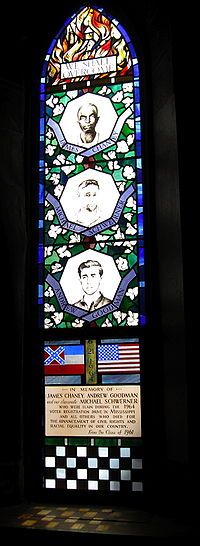I believe that you have crossed a line, Mr. Obama. At your recent press conference you very casually stated that “we tortured some folks” :
With respect to the larger point of the RDI report itself, even before I came into office I was very clear that in the immediate aftermath of 9/11 we did some things that were wrong. We did a whole lot of things that were right, but we tortured some folks. We did some things that were contrary to our values.
How long is the “immediate aftermath of 9/11” (of 2001)? Is it hours, weeks, months, years – how long?
I only ask because it seems that now, almost 13 years later, you are still presiding over the administration of torture on people allegedly connected with 9/11/01.
When will you cease and desist “torturing folks?”
You go on to state:
I understand why it happened. I think it’s important when we look back to recall how afraid people were after the Twin Towers fell and the Pentagon had been hit and the plane in Pennsylvania had fallen, and people did not know whether more attacks were imminent, and there was enormous pressure on our law enforcement and our national security teams to try to deal with this. And it’s important for us not to feel too sanctimonious in retrospect about the tough job that those folks had.
So, some “folks” tortured some other “folks,” but “we” shouldn’t be too “sanctimonious” because the “folks” who ordered and performed the torturing in extreme secrecy for the past 13 years had tough jobs?
Who the hell is this “we” of whom you speak when you say that, “it’s important for us not to feel too sanctimonious in retrospect.”
When were “us” consulted about this? When did “us” demand that “folks” get tortured? Didn’t “us” have some, um, laws about torture?
It seems to me that “us” weren’t in the loop. I don’t remember at any time a movement of “us” demanding that the US withdraw from the UN Convention on Torture and Other Cruel, Inhuman or Degrading Treatment or Punishment.
Sanctimonious? Eat my shorts! Some of us “folks” are just asking you to do your job. Binding U.S. law requires prosecutions for those who authorize torture.
So, let’s continue with your statement.
And my hope is, is that this report reminds us once again that the character of our country has to be measured in part not by what we do when things are easy, but what we do when things are hard. And when we engaged in some of these enhanced interrogation techniques, techniques that I believe and I think any fair-minded person would believe were torture, we crossed a line.
President Obama, this is where you have crossed a line. You have determined that a horrendous crime has been committed. However, in contradiction of the constitutional requirement of your office to “take care that the laws be faithfully executed,” you have opted not to enforce the law and “look forward.” Your desire for political expedience has trumped justice for far too long.
You say that you understand why “folks” committed torture and that “it’s important for us not to feel too sanctimonious” about it, however, while I am not a constitutional scholar, it seems pretty obvious that it is explicitly not your job to let these “folks” who ordered and committed these crimes escape prosecution.
Frankly sir, if you are going to let “folks” off the hook for torture, I can’t think of any crime that “folks” should be accountable for. “We” may as well open up the prisons and let all the “folks” out. Even murder is arguably not as bad as torture where sadists kill a person’s spirit and then day after day, year after year brutalize the remains of the person’s body and mind, for no damned good reason.
You continue:
And that needs to be — that needs to be understood and accepted. And we have to, as a country, take responsibility for that so that, hopefully, we don’t do it again in the future.
You want “us” to take responsibility for this? Seriously sir, no stinking way.
The best way for “us” as a country to “take responsibility” for this disgusting episode is for “us” to refer this to the courts. Under our constitution, they are the finders of facts and the means for “us” to decide whether mitigating circumstances should be taken into consideration in determining accountability. As president you have the power to issue pardons, but those come after a judgement and sentence have been issued.
Frankly sir, you have been getting away with acting as judge, jury and executioner for far too long.
It is time for “us” to have a say in this matter, regardless of whether you think that “we” are a bunch of “sanctimonious purists.”
Thank you for your attention. I hope to see you at The Hague.



 As noted this week at
As noted this week at
Recent Comments